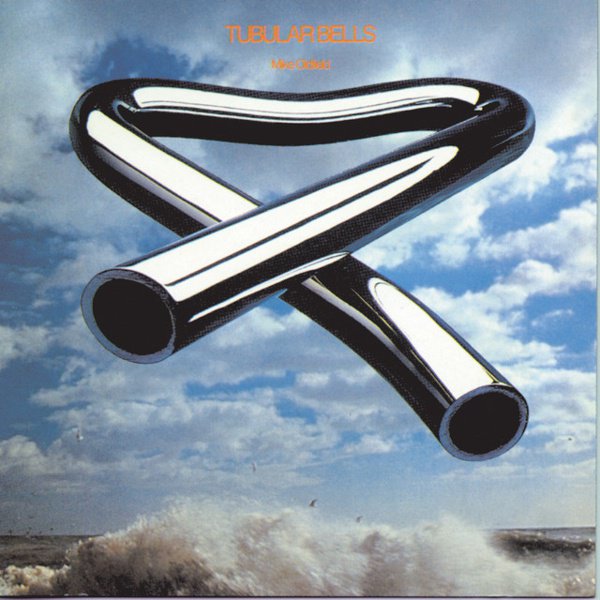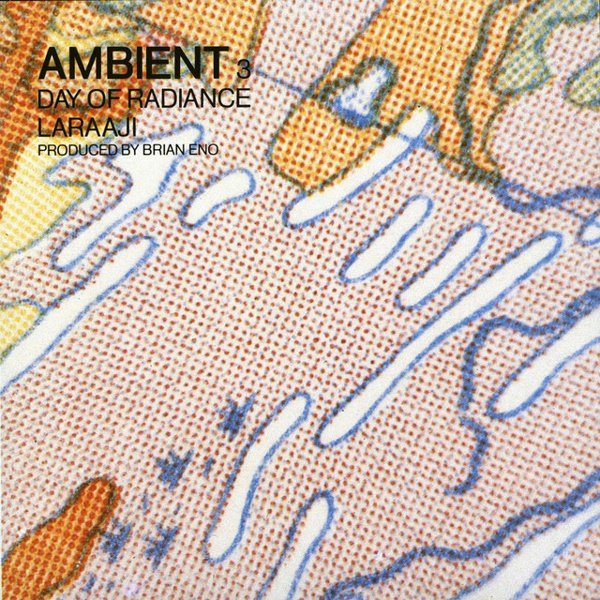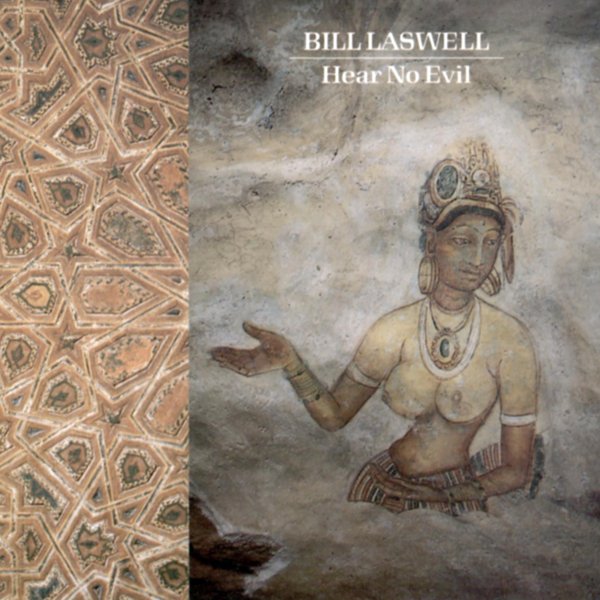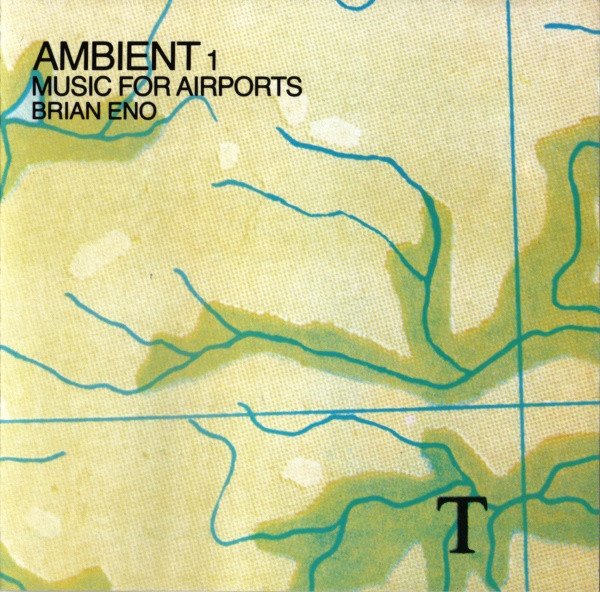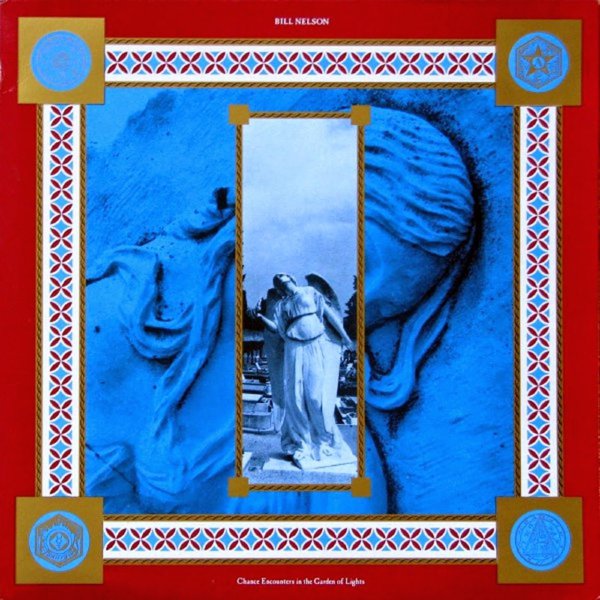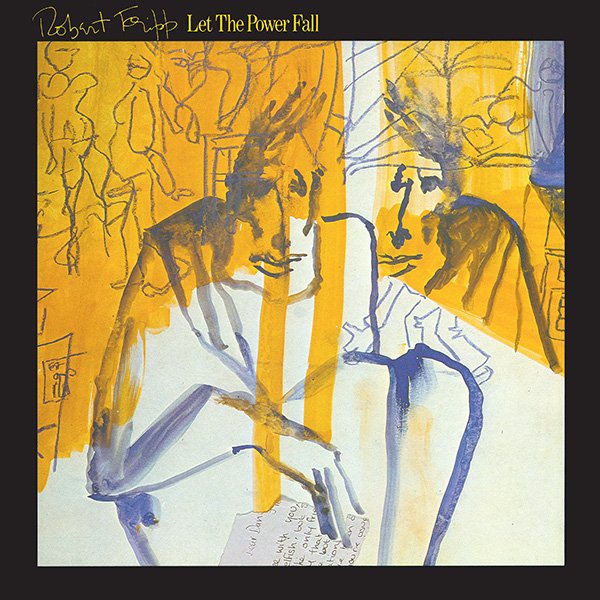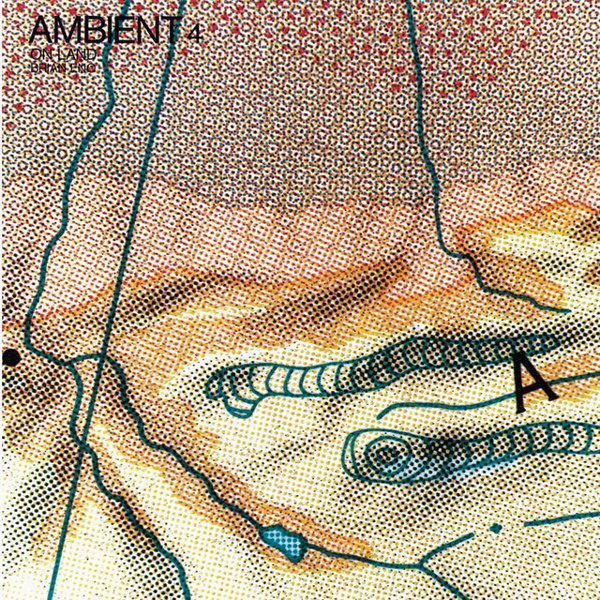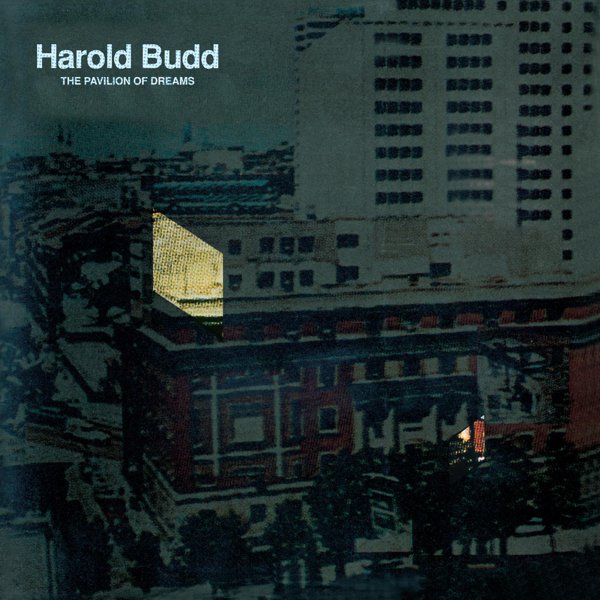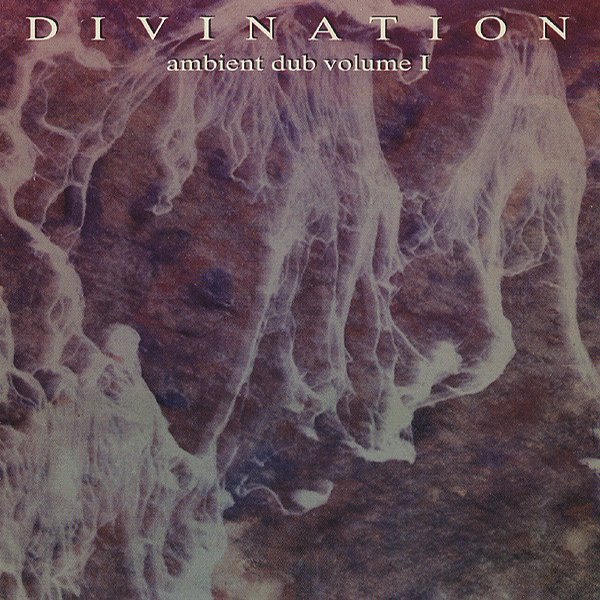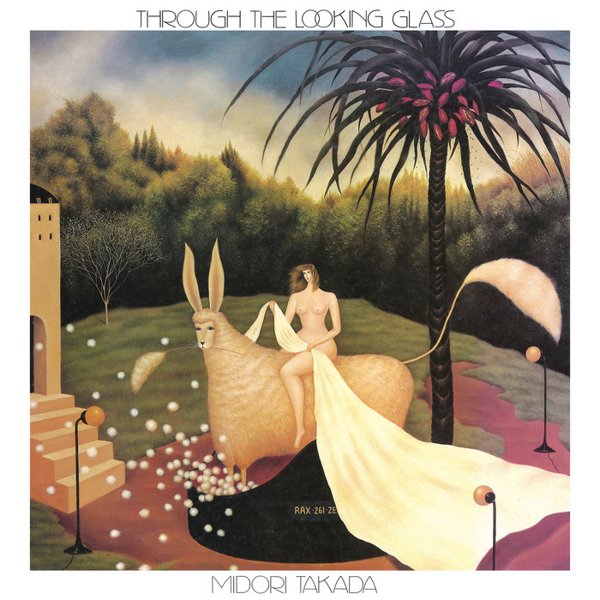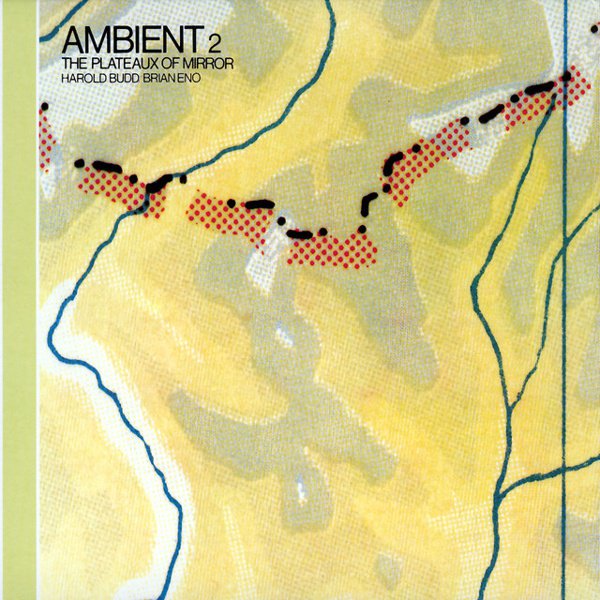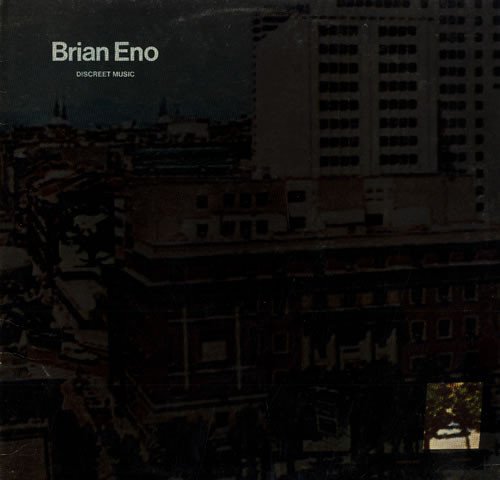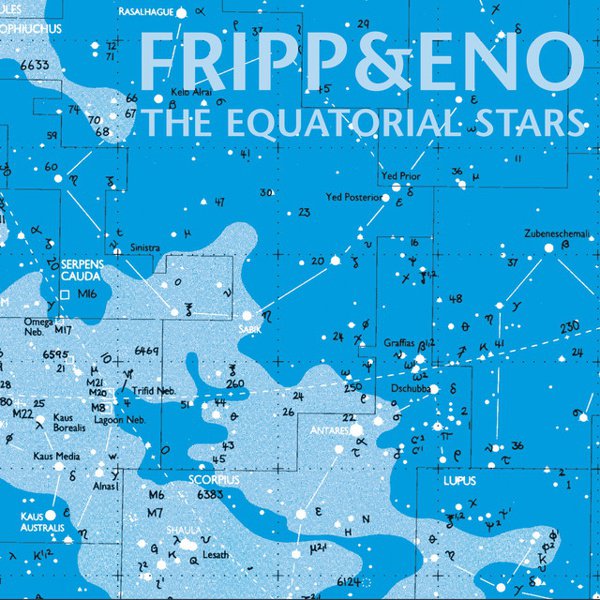Although the term has come to be used as a synonym for “relatively quiet” (particularly in the context of dance music, where one might encounter “ambient techno” and even “ambient jungle”), “ambient” music first emerged in the 1970s as music designed explicitly to create a particular atmosphere or “ambience” without commanding one’s attention. Like New Age music it tends to be simple and undemanding, but it does not usually seek to invoke the mystical or spiritual; it can be dark or light in tone, and may or may not incorporate rhythm and identifiable melody. Some ambient music is difficult to distinguish from sound sculpture, particularly if it’s quite harmonically static. Brian Eno is generally credited both with inventing the musical style and coining the term “ambient” to describe it; his album Discreet Music was the first recording deliberately made in this style, and he subsequently went on to release a numbered series of albums with the word “ambient” in their titles. Other artists working in this general style have included Harold Budd, Laraaji, O Yuki Conjugate, and Popol Vuh.

